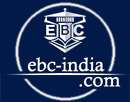|
A. THE EMERGENCE OF THE UNIVERSITY
The National Law University, Jodhpur was established by the Act 22 of Rajasthan State Legislature (National Law University Act, 1999) in November, 1999 for the purposes of advancement of cause of learning, teaching, research and diffusion of knowledge with law by developing professional skills of persons intending to take up advocacy, judicial service, law officers, corporate managers as their professional careers
B. GROWTH
a. Campus at Mandore, Jodhpur
The Government of Rajasthan transferred about fifty acres of land at Mandore to the University in November 2000. The Hon'ble Dr. Justice A. S. Anand, the then Chief Justice of India on August 26, 2001 in the presence of Honorable Chancellor Dr. Justice A. R. Lakshmanan, the Chief Justice of Rajasthan and Shri Ashok Gehlot, the then Chief Minister of the State of Rajasthan, laid down the foundation stone of the University. Within a record time of two years, the National Law University moved in to its own campus on July 1, 2003.
b. Information Technology
National Law University has a student computer ratio of 1:1 and Each student of NLU is connected globally 24/7. The Info-Tech Committee, in conjunction with the University administration embarked on an ambitious program of networking the entire campus. The program was very successful. 100 Mbps Ethernet wiring is provided in every hostel room. Besides, wireless networking in the form of 802. 11 G Wi-Fi is available in the academic block, library and mess building. The Internet is an invaluable resource in today's world. NLU has a total of 756 Kbps of 24x7 Internet access available in each of the hostel rooms and wireless connectivity in the academic block including the library and the mess block. This will be upgraded very soon to 2 Mbps of bandwidth. There is a single yearly charge for this access, which is included in the fee. No monthly charges are levied. NLU subscribes to online libraries like Westlaw and Manupatra, which together offer a wealth of international and national legal business information. Besides, NLU has offline case research libraries like Grand Jurix and Supreme Court Cases. In addition to the Internet, NLU has a campus wide network, known as the CampusNet, which allows students to share academic resources easily and participate in the Internet. Faculty also would be in a position to send essential articles and other academic material resources to the students. Linux based servers monitor and log the usage patterns to track any untoward usage. Every student is provided with a CampusNet ID, which enable access to all these resources and is also given an email address of the form name@nlujodhpur.ac.in. Students have a major role to play in managing all these resources. Info-tech Committee actively works to enhance the computing resources at NLU. The official NLU (Website : www.nlujodhpur.ac.in) is completely designed and managed by the Info-tech committee.
c. Library
NLU library is on its way to fully automated working as a heart of the Institution. The computers are placed in the library for facilitating the students to access virtual library. The availability of wireless connectivity (wi-fi) facilitates students to use their laptops in the library so that they can harness the best out of the online and offline resources. The library has procured over 8,000 reading materials including Text Books, Journals, Acts etc., worth more than Rs 30,00,000 in a span of four years. A complete set of journals like The All India Reporter, The All England Law Reports, Harvard Business Review, Harvard law Review, Journal of Business Laws, Criminal Law Journal, Company cases, Supreme Court Cases, Current Central Legislations, etc. are available.
The Library at present subscribes to over 75 journals in different disciplines such as Science, Humanities, Management and Law. In addition, library also subscribes Magazines and Newspapers covering all disciplines. At present, NLU library has the institutional membership of British Council Library, Delhi. The library provides circulation facility based on bar code technology and OPAC (Online Public Access Catalogue) and WEBOPAC by providing different types of searches such as Author, Title, Publisher, and Boolean etc. The library adopted AACR-II and CCF format for cataloguing and Dewey Decimal Classification (DDC) scheme for classification. All these date are based on the international ISO-2709 format for international data transfer.
The Library also provides to the students English and Business English Communication sets of Linguaphone-a scientific language learning aid. The Library is fully equipped with adequate facilities of Xerox and print outs at nominal costs, assisting students for almost 12 hours a day.

|



